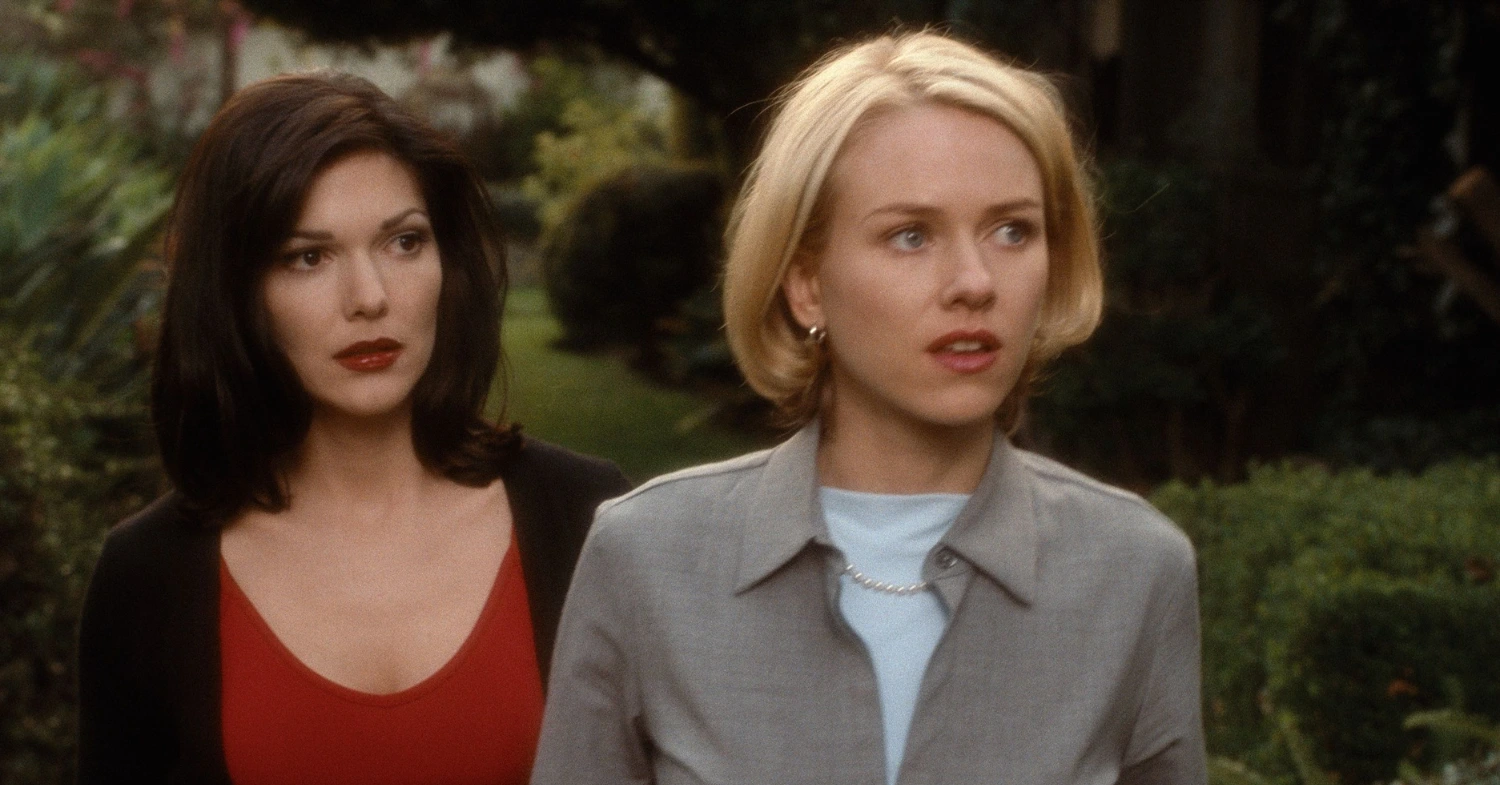Over 20 years since its release, Mulholland Drive is a worthy canonical entry into film history. David Lynch pieces together one of the strangest, most beguiling movies ever. Every image of this film is seared into my memory. Naomi Watts and Laura Harring both give powerhouse lead performances.

Admittedly, watching a movie for the first time after seeing its monumental rise on the Sight & Sound list just a few days prior puts nearly any film at a disadvantage. When it’s presented to you as being one of the ten greatest achievements that the medium has, what are you supposed to do – appreciate it, understand it, love it? Maybe my age is starting to wear on me (22 going on 42), but even linear films take a couple rotations to stick, so you can imagine the deepening sense of misunderstanding and ambiguity that I felt after finally, after long delaying it, watching David Lynch’s Mulholland Drive.
At this point, there are very few canonical juggernauts left that I feel the same way about as I did before seeing Mulholland Drive. Some greats you want to experience in the best setting possible: the best screen, the best sound, and an atmosphere that lets you sink into every detail of what the filmmaker is trying to present. Maybe I was saving Mulholland Drive for a rainy day, or maybe I was saving it as an unopened present knowing there’s a chance I feel differently about the state of the early 2000s industry after seeing it.
And quite frankly, I sure do. Mulholland Drive isn’t a film about understanding. It’s actually the opposite – a puzzle of fragmented vignettes portraying life in Hollywood, the ambiguous tale of rise and fall in an industry of sharks, and how equally unambiguous the film still manages to be in its thematic telling of ambition meeting social systems. To put it mildly, there’s never been a film like Mulholland Drive, and there never will be in the future.
By the time the film released in 2001, David Lynch had made this storytelling technique (or lack thereof) his bread and butter. The Twin Peaks creative mind had developed countless hours of mind-bending, incomprehensible-yet-comprehensible works, but nothing like the Hollywood odyssey he was attempting to deliver to audiences in a matter that would both satisfy and completely shatter them.
Soon after the film’s opening credits, it’s clear that Lynch has thrown out narrative structure for atmosphere. The dazzling street lights, lavish infrastructure, and slick costume design all help to idealize a Hollywood system that would soon be deconstructed and left bleeding on the streets by the time the runtime finishes up. Combined with empathetic and effective performances by both Naomi Watts (Birdman, The Ring) and Laura Harring (I won’t attach them to character names in fear of spoiling this jarring set of tales for anyone) and a hilariously meta Justin Theroux (American Psycho, Beetlejuice Beetlejuice), Mulholland Drive soon becomes a film about the people that live in these worlds and who are broken down by their systems day after day.
And yet, in order for the story to work (and the film in general), the pieces around it need to be so elegantly crafted in a way that both pulls a viewer in, and doesn’t overshadow the larger building blocks for the intertwining world David Lynch is creating.
I can see where a film like Mulholland Drive may be panned in the moment for its lack of cohesive plot points and narrative beats, but if it’s able to endure beyond the contemporary backlash, films like this can become groundbreaking works years later. Take The Green Knight for example. I’m not saying that these two films are equal, but there’s now a swelling of fans behind The Green Knight clamoring for its recognition as one of the best films so far this decade.
There’s also a bit of meta-commentary about the film industry and its treatment of its middling class. As we know, Academy Awards voters and Sight & Sound voters love to watch movies about Hollywood, so that surely helps get Mulholland Drive some brownie points as the year goes on. But at least there’s enough bite to this film and enough driving energy to justify its place amongst the greats.
So I will say, did I leave Mulholland Drive thinking it’s a top ten film ever made? I’m not going to fall for my own click baiting question, but I do understand its placement on the newest Sight & Sound list. A mesmerizing and illusionary tale of self-identity, Mulholland Drive lives on for a reason. Few films feel simultaneously timeless and completely tied to a director’s time in history, but David Lynch’s magnum opus does just that. I imagine there will be some rediscovery for this film among a younger generation for years to come, and I also imagine some will curse it out at the end. It’s not easy, it’s not straightforward, and it’s certainly not forgiving – but for all of these reasons, it’s one of the greats.
Score: 10/10
- Cast: Naomi Watts, Laura Harring, Justin Theroux, Ann Miller, Mark Pellegrino, Robert Forster, Brent Briscoe
- Director: David Lynch
- Genre: Drama, Mystery, Thriller
- Runtime: 147 minutes
- Rated: R
- Release Date: October 19, 2001
More Reviews for Movies Directed by David Lynch
David Lynch has directed the following movies: